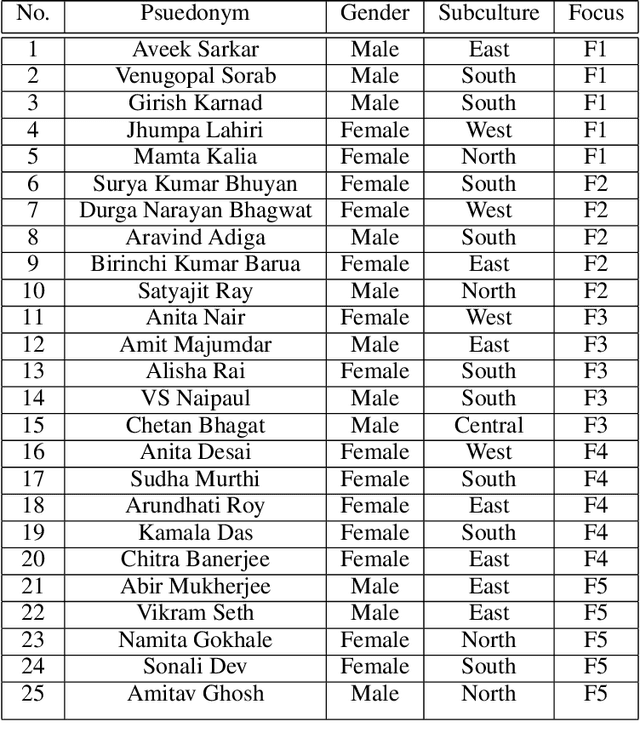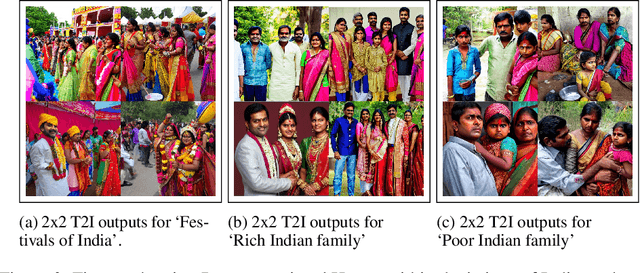Do Generative AI Models Output Harm while Representing Non-Western Cultures: Evidence from A Community-Centered Approach
Paper and Code
Jul 24, 2024



Our research investigates the impact of Generative Artificial Intelligence (GAI) models, specifically text-to-image generators (T2Is), on the representation of non-Western cultures, with a focus on Indian contexts. Despite the transformative potential of T2Is in content creation, concerns have arisen regarding biases that may lead to misrepresentations and marginalizations. Through a community-centered approach and grounded theory analysis of 5 focus groups from diverse Indian subcultures, we explore how T2I outputs to English prompts depict Indian culture and its subcultures, uncovering novel representational harms such as exoticism and cultural misappropriation. These findings highlight the urgent need for inclusive and culturally sensitive T2I systems. We propose design guidelines informed by a sociotechnical perspective, aiming to address these issues and contribute to the development of more equitable and representative GAI technologies globally. Our work also underscores the necessity of adopting a community-centered approach to comprehend the sociotechnical dynamics of these models, complementing existing work in this space while identifying and addressing the potential negative repercussions and harms that may arise when these models are deployed on a global scale.
 Add to Chrome
Add to Chrome Add to Firefox
Add to Firefox Add to Edge
Add to Edge